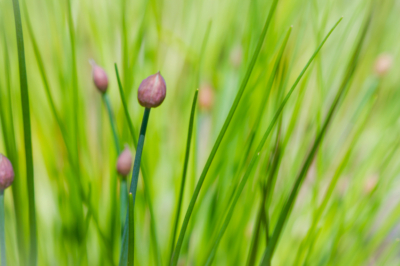Usually, chives are rather rarely attacked by fungi or insect pests – in fact, it is usually recommended to plant chives together with endangered flowers to avoid such infestation. However, even with this actually resistant culinary herb, infestation cannot always be avoided, with weakened plants being particularly at risk.

Chives turn yellow
The most common health problem with chives are scrawny leaves that turn yellow. Of course, these can no longer be used in the kitchen, moreover, they multiply quickly. For this reason, you should take action as soon as possible at the first signs. In most cases, chives turn yellow because they are too dry or it is simply too hot for them. In this case, countermeasures are simple: water the plant more often and protect it from too much sunlight. Sometimes, however, the chives stand too wet, so that the roots rot and can no longer supply the above-ground parts of the plant.
Fungal diseases
Especially in damp and cool summers, the leaves of chives are attacked by the rust fungus “Puccinia alli”, the so-called chive rust. You can recognize an infestation a the small, round and rust-red spots on the leaf tubes. Cut off the diseased plant just above the ground and water it with a diluted nettle broth.
Aphids – the gardener’s favorite enemy.
Aphids, on the other hand, are very rarely found on chives. When they do, the unwanted little animals mainly attack potted chives on the balcony or windowsill – these plants are usually not as hardy as planted chives, and in addition the aphids in these cases have only a limited food supply and therefore colonize the chives out of sheer necessity. Aphids are also best controlled with nettle decoction.
Making nettle broth – also known as nettle liquid manure – is quite simple, but takes some time.
- Put on sturdy gardening gloves and long clothing.
- Pick about a kilogram of nettles and chop them up.
- Fill the nettles into a bucket.
- Pour about 10 liters of boiling water over them.
- Let the decoction steep for about two days.
- Strain the nettles.
Tips & Tricks
Do not treat chives (as well as other kitchen herbs) with chemicals, otherwise the herb can no longer be eaten. If in doubt, cut the stalks to just above the ground – chives will quickly sprout again.

